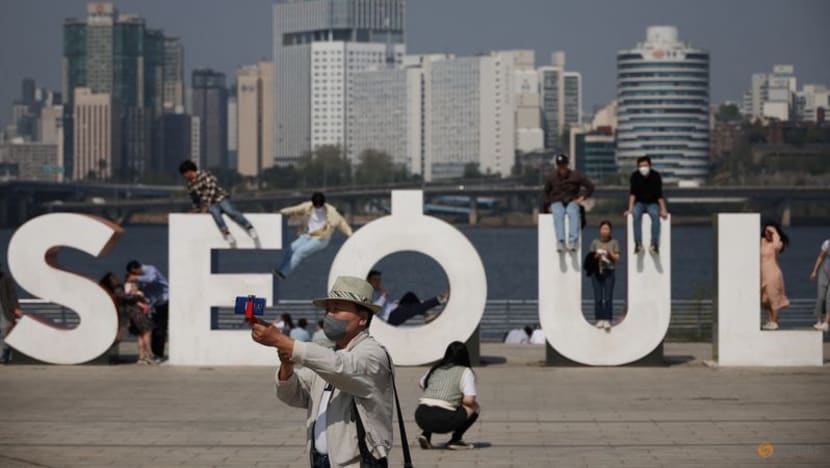Commentary: A surprise South Korean boom is going unnoticed
South Korea is riding an export bonanza courtesy of the US. But its citizens are not reaping the benefits, says Daniel Moss for Bloomberg Opinion.

SINGAPORE: If only K-pop and cinema would get out of the way. South Korea has a ringside seat to the world economy, but struggles to get the attention it deserves.
That's a pity because the view is promising and says much about upbeat global prospects. In some ways, developments are almost too positive.
The country is often overlooked relative to mighty neighbours Japan and China. South Korea has become more famous for cultural exports - and the ebb and flow of tensions with Pyongyang - than the key components of 21st century commerce that leave its ports in encouraging numbers.
Growth is surging, largely on the strength of demand from abroad. The bulk of the credit goes to the resilience of the US economy, and, to a lesser degree, signs that China might be past the worst of its slowdown. Washington’s ringfencing of investments deserves a shoutout as well, given Seoul is a close American ally.
What could be wrong with this? There will be no relief on interest rates soon. This, too, is a reversal. The central bank laid down an early marker in August 2021, becoming the first industrialised economy to tighten, way ahead of the Federal Reserve and before neighbourhood inflation obsessives like New Zealand.
With the current bullish conditions, borrowing costs will be slow to retreat.
PROSPECTS OF A DOWNTURN HAVE DIMINISHED
It didn't look that way a year ago; economists confidently predicted multiple cuts beginning in late 2023. There was even a chance of recession.
Prospects of such a downturn have greatly diminished. Inflation is proving a little stubborn and a rampaging greenback has weakened Korea's currency, the won, to a degree that worries the central bank. This is an unfortunate byproduct of robust conditions in America and diminished hopes for early reductions from the Fed, a shift that has reverberated through global markets.
“I wouldn't call it starting from scratch,” Bank of Korea Governor Rhee Chang-yong told reporters recently. “But the situation has changed.”
Nor is President Yoon Suk Yeol getting any kind of dividend from this economic buoyancy. His party received a drubbing in parliamentary elections last month when voters rebelled against Yoon’s hard-right policies. So great was the bloc's defeat that political scientists declared his rule over with several years left in his term.
Investor-friendly policies championed by Yoon, like deep cuts in capital-gains tax and union busting, will struggle to get traction. The average Korean has yet to experience better times. An index of consumer sentiment has hovered either side of the divide that gauges whether optimism or pessimism prevails.
Boom times for Samsung Electronics and SK Hynix don’t necessarily translate into euphoria on the streets. High levels of debt and worries about inequality have accompanied the country’s advance in recent decades - and inspired Netflix’s hit Squid Game and, a few year’s earlier, the Oscar-winning film Parasite.
GOOD NEWS
But don't let that crowd out some very good news. Gross domestic product in the first quarter increased an impressive 3.4 per cent from a year earlier, beating forecasts by a handsome margin.
Net exports were vital to this outcome. Construction, which had languished but stands to be a big beneficiary of the state's infrastructure programme, showed signs of ticking up. Household spending is slowly improving.
Then, last week, blockbuster shipment data hit. Exports climbed more than 11 per cent in April from a year earlier.
Purchases by US customers jumped by almost a quarter, easily surpassing the roughly 10 per cent headed to China. That marked the third consecutive month when goods dispatched to America exceeded those destined for its neighbour. Proximity to Beijing no longer automatically bankrolls regional economies.
When many people think of Korean engagement with the world, they have in mind phenomena like BTS, the boyband sensation whose members are taking time out for military service, or more recent arrivals like NewJeans. To walk down some streets in Singapore is to wonder how many Korean BBQ places a single city can sustain. These are narrow or, at best, incomplete pictures.
The memory chips that drive modern electronics and artificial intelligence are hot property. There is much more to this economy than its cultural exports. All you need to do is notice the wiring.














